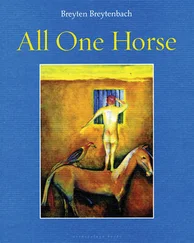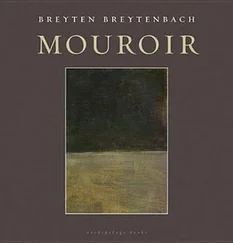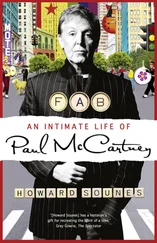(mirror note 1)
This is what I come across, leafing through Habitations of the Word of William H. Gass:
“Our oblivion has been seen to. . and unless we write as though the ear were our only page; unless upon the slopes of some reader’s understanding we send our thoughts to pasture like sheep let out to graze; unless we can jingle where we feed, sound ourselves and make our presence heard, unless. .
So hear me read me see me begin.
I begin. . don’t both of us begin? Yet as your eye sweeps over these lines — not like a wind, because not a limb bends or a letter trembles, but rather more simply — do you find me here in your lap like a robe? And even if this was an oration, and we were figures in front of one another. . holding up the same thought, it would still not be the first time I had uttered these sentences (though I seem to be making them up in the moment of speaking like fresh pies), for I was in another, distant, private place when I initially constructed them, and then I whispered them above the rattling of my typing. .; I tried to hear them above the indifferent whirring of their manufacture, as if my ear were yours, and held no such noise. . God knows what or where I am now — now as you read. Our oblivion has been seen to.”
Reader, sweet Reader — I know I ask much of you. You have been very patient with me, waiting for the meaning of my rambling (if any, if ever). But the longer I hold forth the closer you will come to me until, at last, you sigh in my arms.
This is my dearest desire. I start to sense you through the words, the way they bounce off you. You are still young and so beautiful, you have a curl to your lips, you sometimes look askance at me through your eyelashes. Dare I think that your heart thumps a little quicker as you turn the pages? How well you know me by now! (Or think you do.) At night I toss restlessly when I dream of you and in the morning there’s the odor of your sex on my pillow.
And yet, I do not want to tie you down; for us love will be in leaving , just as it is without end or design. For this story to move forward to closure there must be the two of us — like Huitzilopochtli, the white sun god as personification of day and summer and south and fire, and the black Tezcatlipoca, s/he of the set sun and of night and firmament and winter and north and water. Yes, eventually there will be parting.
The presence of both of us for now will ensure that the book remains in equilibrium. Where are you? I certainly need to continue talking to you, I search for you from day to night. Maybe I am looking for myself, maybe because I only exist in your mind. But I start to sense myself through the words, in the way your reading and looking bounce off me. This book will be our meeting ground and our shared existence. Of course, I’m making of it the bed in which we shall lie for me to whisper stories in your ear. I don’t want to be forward, but perhaps then you’ll turn and look at me and the sun will set in the water.
Will you? Without the one the other cannot exist. Today I heard about two twin ladies in their great old age, having lost both their husbands and the memory of orgasms and names, sitting together in a room warmed by an evening sun, and the one turning in utter uncertainty to the other to enquire plaintively: “Tell me, am I alive ?”
in a big room behind a glass wall
looking out above water
the color of green oblivion
how ferryboats waddle from quay
to fog-written islands in the bay
mirrored in pane the vague figure
of a naked man as he waits
now and then the veil blows away
and a bone city on distant mountain coast
flickers fleetingly
flits and flattens again
to an imagined memory
where is my love my love
on either side the soaring gray metropolis
of concrete and shine and neon thoughts
along streets the trees in a still
fire of fall
a few cars soundless and wet
sometimes a pedestrian with mouth of cold breath
a dog on a leash
a crow flutters by and later a gull
storied debates around the nature of being
and for what will man be held to account
the rush of voices
as the heart bears its shout
where is my love my love
on the edge of this continent
of forest and snow
by the end of the world
at the hem I say
of a dark ocean
where whalefish roam
to hollowly sound their despair
in waterlogged waiting rooms
if one were to let darkness flood
who would identify the corpse
who fold the shroud like a wing around absence
what name as solitary password
will be pinned to the waterlogged heart’s hollow
a crow flies by and later a gull
where is my love oh where is she now
Vancouver
The summer has been dense and crazy. More so than usual, and not easy to come to words with. Or is it just my imagination silting up as I grow older and less flexible? Am I having trouble imagining and therefore shaping the understandable? Maybe there is a point of saturation beyond which the digestion of impressions — through writing — becomes difficult.
Still, the past northern or European summer was for me an illustration of how problematical it is to live in this world with some grace and equilibrium, let alone a sense of enjoyment and satisfaction.
I’m referring, of course, to the outside story of our times. There was the flaring conflict in the Middle East with seemingly no resolution in sight, despair and brutality and thus brutalization on both sides, depression and destruction and death. There were the days of Genoa which ushered in a fore-grounding of the divide between the official powers of a new world order (the G8) and contestants of many different origins and directions — eco-warriors, anti-globalists, anti-capitalists, so-called illegal immigrants (“people without papers”), anarchists and idealists and revolutionaries. . And what does the confrontation and its repression say to us? Where is it leading to? What will come next? How does it affect our local environments? There was the ongoing painting out of wars and horrors and disasters in Africa, probably not by design but because that continent just doesn’t figure on the radar screens of the powerful who interpret and classify information, those people and instances who decide what will be ‘news’ and what relegated to the obscurity of ‘non-events.’ But the unnamable will flow over into other parts of the world: pateras bring their cargoes of espaldas mujadas over the Gibraltar Straits to the coast of Andalusia (already 10,000 clandestine migrants have been intercepted so far this year, hundreds coming from deeper down Africa die in the desert on their way to the Moroccan ports of embarkation and many more drown when their makeshift crafts capsize); desperate Afghans and Kurds and Pakistanis try to walk through the tunnel under the sea between France and Britain; boatloads of refugees are adrift off Australia and Europe and probably America too; and there’s a continuing tide of people trying to get into the United States through Mexico. Mount Etna erupted, spewing its antediluvian anger in brimstone and smoke. There were floods and wildfires and catastrophes elsewhere. And earthquakes. Nearly all of the European continent is still afflicted by the plagues of ‘mad cow’ and ‘foot-and-mouth’ diseases. Soon there will be ‘bird flu.’ And then we witnessed a kind of low spluttering of international concerns and justice — Milosevic brought to The Hague to stand trial, the beginning of a resolution to the civil war in Macedonia. There was the bizarre wipe-out of the royal household in Nepal. The destruction of the Buddhas in Afghanistan and, worse, the darkening plight of all women in that sad country. Chinese authorities carried out the executions of ‘criminals’ by the thousand, shooting them behind the ear and often removing right there in the fields of death the vital organs for transplantation. In the West too, we entered the slippery domain of stem cell research and fetus manipulation and eventual cloning — how Mengele must be laughing in his grave! We could observe the gradual shifting into hostile positions of America and China, and more specifically the perturbing unilateralist stance America was taking internationally — renouncing the Kyoto agreement on attempting to turn back the pollution of our shared planet, protecting its ‘right’ to make land-mines and chemical and bacterial poisons, wanting to scrap anti-nuclear proliferation treaties in order to put up missile shields, its near total inertia in the Israeli-Palestinian conflict, continuing to bomb Saddam Hussein ineffectually, walking away from the Durban Conference against racism. .
Читать дальше












